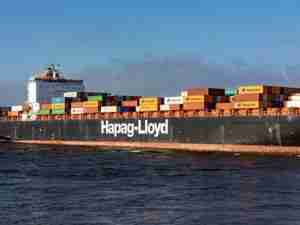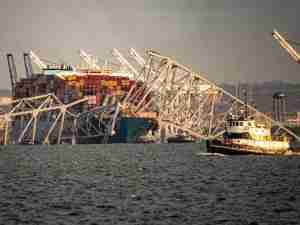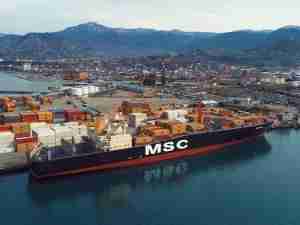Maersk’s New CEO Needs a Bit of Bravery to Unlock Value: Gadfly
By: Chris Bryant | Jun 23 2016 at 12:10 PM | Liner Shipping
Investors are understandably excited about a change of the guard at AP Moeller-Maersk but much will depend on how brave new management is prepared to be.
The stock jumped about 12 percent on Thursday in the biggest one-day gain since 2008 on hopes that the container shipping and oil group will carry out a radical face lift that could help remove the discount investors often apply to large conglomerates— Jefferies analyst David Kerstens says in Maersk’s case this has led to shares trading at about a 40 percent discount to its net asset value.
The company said Thursday Chief Executive Nils Andersen is stepping aside and will be replaced by Soren Skou, the head of the container shipping line. Chairman Michael Pram Rasmussen said the company will review its strategic options, including a possible split.
Maersk shares have gone nowhere over the past decade even though a previously unwieldy conglomerate has slimmed down and done a better job than some rivals to cut costs.
But Maersk’s shareholders shouldn’t get too carried away. Much of the low-hanging and superfluous fruit, like its banking and supermarket holdings, have already been sold.
These days Maersk is much more tightly focused on two areas: container shipping and freight terminals, on the one hand, and oil production and drilling on the other. And that’s exactly the problem.
Plunging oil prices and container shipping rates have created a perfect storm for the group—net profit tumbled 84 percent last year.
Given his background, Skou’s appointment might suggest the group’s primary focus will be on the shipping business—he’s been the head of Maersk Line since 2012 and will retain that role.
But trying to sell a loss-making oil exploration business in the current environment might be unwise. Although Brent crude has rebounded above $50 a barrel, which should enable the oil unit to break even in coming quarters, the recovery isn’t set in stone.
European oil majors like Royal Dutch Shell are under pressure to cut debt and boost cash flows. This is a buyers’, not a sellers’ market.
A separation and IPO of the still-profitable shipping line, which accounts for more than half of Maersk’s revenues, might therefore create more value.
The problem is that attracting new investors at the right valuation may not be easy. Industry consolidation and new alliances could ultimately drive an improvement in shipping rates in the long term, but the current surfeit of new carriers entering service means that will take time.
Meanwhile, trading of rivals’ shares isn’t particularly promising. German container shipping group Hapag-Lloyd’s stock price is below the value at its IPO last year.
Skou has his work cut out to move Maersk’s shares higher.
This column does not necessarily reflect the opinion of Bloomberg LP and its owners.









